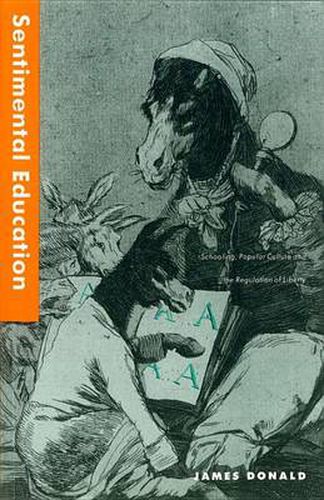Readings Newsletter
Become a Readings Member to make your shopping experience even easier.
Sign in or sign up for free!
You’re not far away from qualifying for FREE standard shipping within Australia
You’ve qualified for FREE standard shipping within Australia
The cart is loading…






What sort of institution is education? In this iconoclastic study, James Donald restores the school to its proper place at the heart of post-Enlightenment culture and politics. He traces the emergence of education as an apparatus designed-forlornly-to shape the souls of citizens. He also draws illuminating analogies between education and broadcasting, showing how both conjure up publics and structure the everyday lives of individuals. To balance this focus on the institution of cultural norms, Donald emphasizes the dynamics of fantasy and desire in their negotiation. He therefore juxtaposes the normative practices of education and broadcasting against more transgressive forms of popular culture: pornography, racist thrillers like Fu Manchu, vampire films, and what he calls the vulgar sublime. Finally, drawing on postmodern debates about community and democracy, he sketches a context for reforms in broadcasting and presents a provocative alternative to orthodox progressive ideas about education from the primary school to the university.
$9.00 standard shipping within Australia
FREE standard shipping within Australia for orders over $100.00
Express & International shipping calculated at checkout
What sort of institution is education? In this iconoclastic study, James Donald restores the school to its proper place at the heart of post-Enlightenment culture and politics. He traces the emergence of education as an apparatus designed-forlornly-to shape the souls of citizens. He also draws illuminating analogies between education and broadcasting, showing how both conjure up publics and structure the everyday lives of individuals. To balance this focus on the institution of cultural norms, Donald emphasizes the dynamics of fantasy and desire in their negotiation. He therefore juxtaposes the normative practices of education and broadcasting against more transgressive forms of popular culture: pornography, racist thrillers like Fu Manchu, vampire films, and what he calls the vulgar sublime. Finally, drawing on postmodern debates about community and democracy, he sketches a context for reforms in broadcasting and presents a provocative alternative to orthodox progressive ideas about education from the primary school to the university.